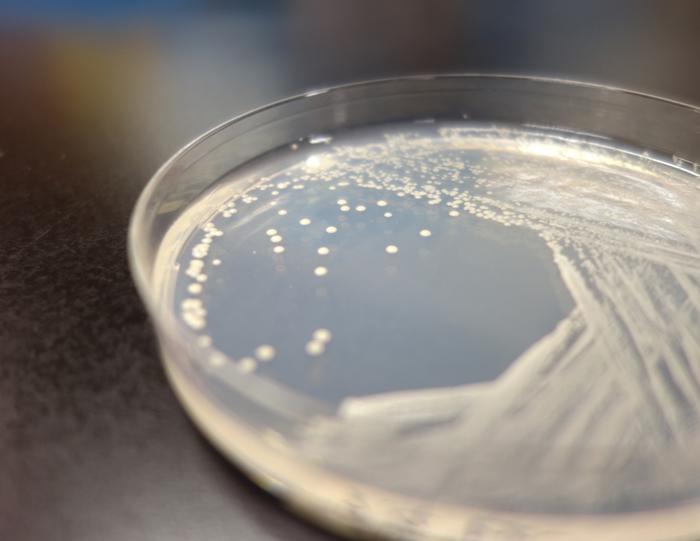Synthetic Yeast Chromosome Created, Marking Major Milestone
National University of Singapore scientists make a giant leap in synthetic biology by creating the largest synthetic yeast chromosome in Asia, paving the way for groundbreaking research in genetics
Dec 19, 2023
AI Image Created Using DALL-E
In a remarkable synthesis of art and science, a team of researchers at the National University of Singapore has achieved a groundbreaking feat in the realm of genetic engineering, illuminating the intricate dance of DNA and its role in the tapestry of life. At the heart of this scientific odyssey lies the humble yeast chromosome, transformed into a beacon of understanding for the genetic underpinnings of life itself.
Chromosomes, those long, twirling strands of DNA, are more than mere carriers of genetic instructions; they are the architects of our very being. Advances in biotechnology have ushered in an era where scientists can now craft and reshape these genetic blueprints, uncovering the secret interplay between gene variations and the traits they spawn.

Yeast, unassuming yet paramount, stands as a sentinel in this quest for knowledge. It shares a cellular kinship with both plants and animals, yet its simplicity renders it an ideal subject for genetic manipulation. By redesigning and synthesizing a yeast genome, scientists can peer into the genetic kaleidoscope and possibly untangle the threads of genetic diseases.
The team from NUS Synthetic Biology for Clinical and Technological Innovation (SynCTI), the Synthetic Biology Translational Research Programme (Syn Bio TRP), and the Department of Biochemistry at the Yong Loo Lin School of Medicine, NUS Medicine, has crafted a synthetic marvel: Chromosome XV, spanning 1.05 million base pairs, a record in Asia. The findings from their work were published recently in Cell Genomics.
Associate Professor Matthew Chang, a visionary in the field, leads this endeavor as part of the Synthetic Yeast Genome Project (Sc2.0), a global consortium dedicated to reconstructing yeast's genetic fabric. This achievement marks a pivotal moment in synthetic biology, with Chang's team at the forefront.
In their laboratory alchemy, the NUS Medicine team transformed the original DNA of Chromosome XV, infusing it with unique alterations to forge a synthetic chromosome unlike any in nature. They pioneered a cutting-edge technology, CRISPR/Cas9-mediated mitotic recombination with endoreduplication (CRIMiRE), which accelerates the exchange of large DNA segments, allowing for the simultaneous assembly of synthetic chromosome pieces into a coherent whole.
The synthetic chromosome, once completed, can be artfully combined with other yeast chromosomes, creating a mosaic of genetic combinations. This technique sheds light on the relationship between genetic variances and individual traits.
CRIMiRE revolutionizes the manipulation of long DNA sequences, a task that once seemed Sisyphean. The process, now expedited tenfold, heralds a new era in constructing larger synthetic chromosomes for more complex organisms.
“This achievement opens the door to understanding basic questions about biological processes,” reflects A/Prof Matthew Chang, his words resonating with the promise of discovery.
"Our journey to complete the construction of the synthetic yeast chromosome has been remarkable," Chang continues, encapsulating the spirit of scientific endeavor. "We have not only showcased our technical prowess in creating synthetic chromosomes but are now able to rapidly reconfigure them into different designs for further studies. These synthetic chromosomes are our key to unlocking answers to fundamental biological questions, offering the potential for groundbreaking advancements that can ultimately benefit humanity in profound ways.”
Dr. Foo Jee Loon, Research Assistant Professor from SynCTI, Syn Bio TRP, and the Department of Biochemistry, NUS Medicine, and the first author of the paper, adds a visionary note: “The achievements from this work hold the promise of paving the way for future advancements in synthetic genomics, especially with larger and more complex chromosomes. This approach can be beneficial in deciphering the mechanisms of and understanding genetic diseases better, and potentially devising treatments.”
Thus, in a convergence of science and aspiration, the NUS team stands at the threshold of a new frontier, their work a testament to human ingenuity and the ceaseless pursuit of knowledge.


















